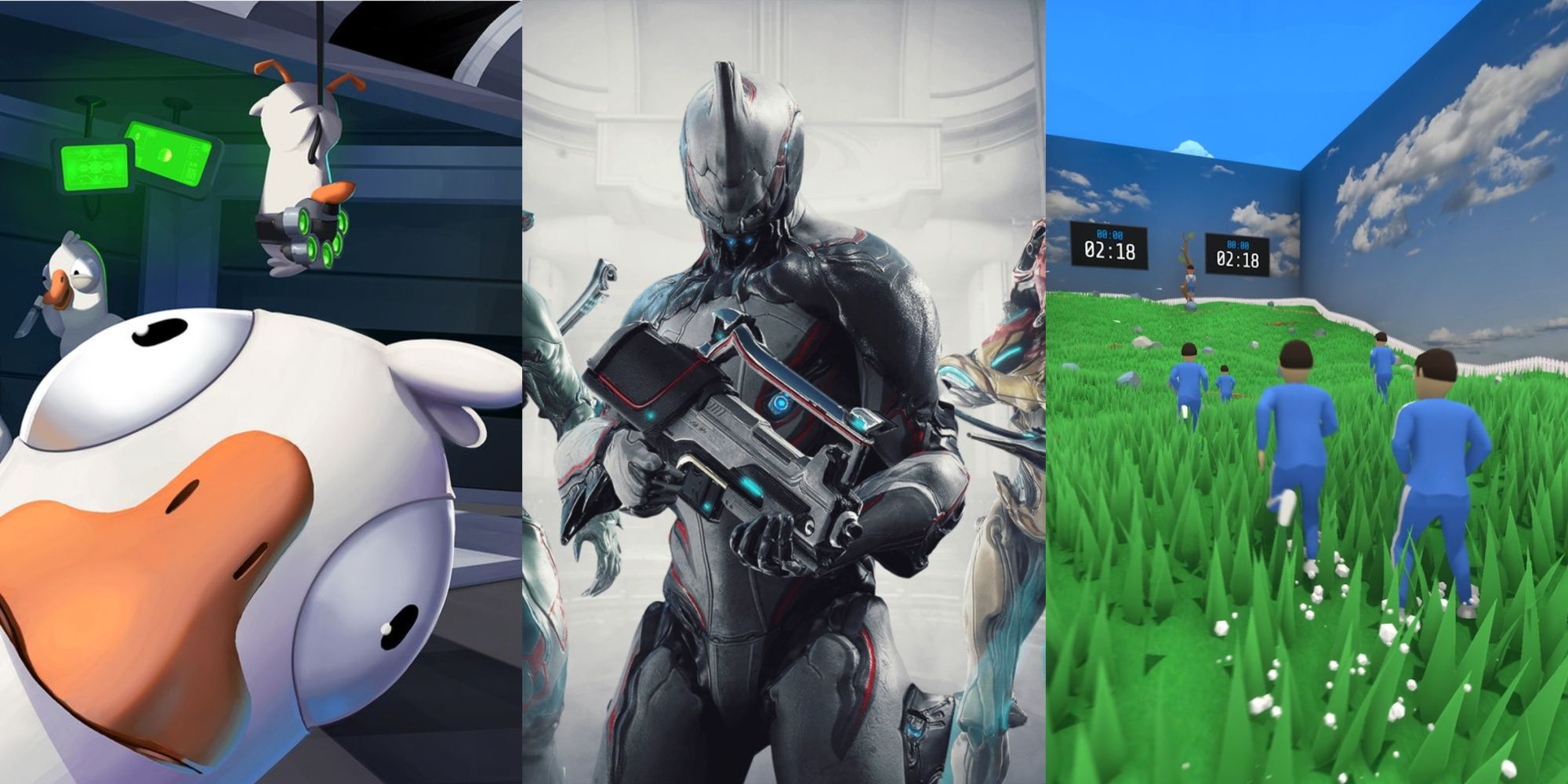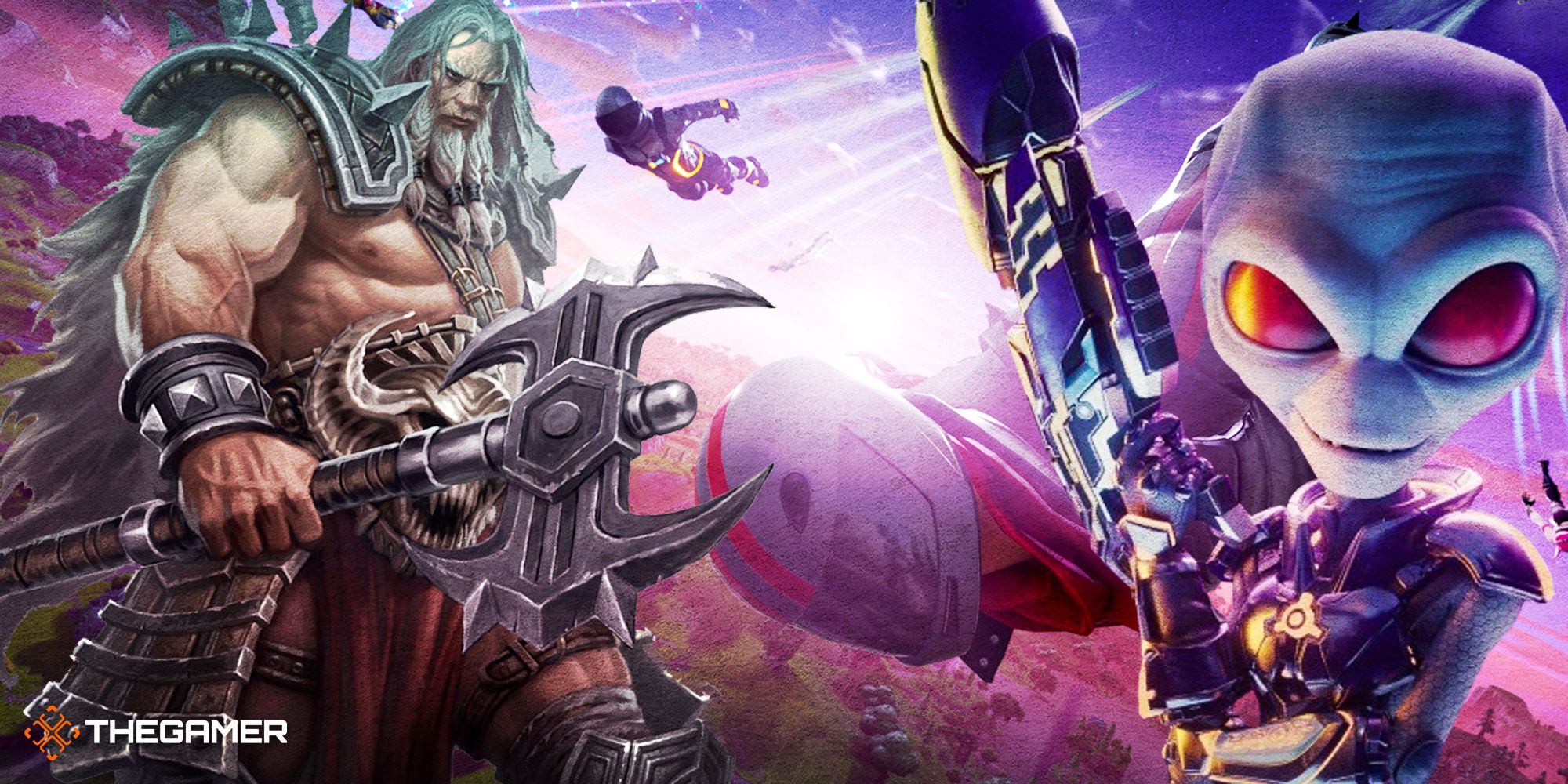. Join the Enjoyable and Connect with Others Through Multiplayer Puzzle Games for Free.
. Join the Enjoyable and Connect with Others Through Multiplayer Puzzle Games for Free.
Blog Article
Examination Your Strategic Abilities in one of the most Involving Multiplayer Gamings
In the ever-evolving landscape of multiplayer gaming, strategic abilities are the keystone of success, supplying gamers an opportunity to showcase their tactical prowess across numerous styles. As players engage in participating experiences or team-based competitions, the requirement of quick decision-making and collaboration becomes apparent.
Real-Time Approach Showdowns
Real-time strategy (RTS) showdowns have actually long been a keystone of engaging multiplayer gaming, exciting gamers with their mix of tactical deepness and hectic decision-making. These video games require gamers to handle resources, construct armies, and develop complex strategies in real-time, commonly against equally competent challengers. The consistent pressure to adapt and exceed opponents in a dynamic setting is what establishes RTS games apart, making them a preferred amongst competitive players.
Among the specifying attributes of RTS showdowns is the emphasis on multitasking and source management. Players must allot their attention across different jobs, such as collecting sources, creating structures, and deploying systems tactically throughout the battlefield. This demands quick reflexes and an acute capacity to prioritize activities, frequently bring about intense, adrenaline-fueled matches.
Remarkable RTS games such as "StarCraft II," "Age of Empires," and "Command & Conquer" have left indelible marks on the category, using diverse gameplay mechanics and highly comprehensive globes. Multiplayer puzzle games for free. These titles have grown committed communities and affordable scenes, where players hone their abilities, study approaches, and engage in high-stakes tournaments. The attraction of RTS showdowns exists in their capacity to test gamers' critical acumen and reflexive expertise in equal step
Turn-Based Tactical Fights
These games supply players the opportunity to ponder over each move, cultivating a chess-like environment where insight and mindful planning are paramount. Gamers have to expect their opponents' activities, adapt to developing circumstances, and perform well-balanced strategies to secure success.
In multiplayer setups, turn-based tactical battles become sectors for intellectual duels. Competitors take part in detailed mind video games, predicting and countering each other's methods with precision. Popular games like "XCOM 2" and "People VI" exhibit this gameplay, encouraging gamers to think about every feasible variable prior to dedicating to a strategy. The asynchronous nature enables thoughtful decision-making, making each encounter an examination of wits and persistence.
In addition, turn-based tactical battles commonly integrate diverse systems and capabilities, including layers of complexity to each match. Players must stabilize offending maneuvers with defensive tactics, take care of resources deliberately, and maximize the capacity of their pressures. This genre's long-lasting charm exists in its ability to test players' calculated acumen in a managed, intentional setting.
Cooperative Approach Experiences
Past the cerebral duels of turn-based tactical battles exists the realm of cooperative method experiences, where synergy and collaboration take center stage. These video games call for players to interact towards common goals, leveraging each gamer's unique abilities and strengths to overcome obstacles. The focus shifts from individual prowess to collective problem-solving, making interaction and sychronisation essential parts of success (Multiplayer puzzle games for free). Titles such as "Overcooked" and "Deep Rock Galactic" exemplify this style, emphasizing the necessity for players to integrate their techniques and actions.

The appeal of participating approach experiences depends on their capability to strengthen interpersonal skills while supplying a challenging and engaging gameplay experience. These games grow a feeling of unity and shared purpose, offering gamers a rewarding choice to conventional affordable video gaming landscapes.
Competitive Team-Based Obstacles
Affordable team-based challenges provide a vibrant arena where gamers match their abilities against opposing teams, stressing both specific skill and seamless team coordination. These video games need individuals to balance personal prowess with critical cooperation, fostering a special environment where team effort is extremely important. Success in such setups typically hinges on the capacity to interact effectively, perform tactical strategies, and adapt quickly to unfolding circumstances.
The engaging nature of these difficulties appears in the varied variety of video games that provide team-based competitors. Titles like "Organization of Legends," "Overwatch," and "Counter-Strike: Global Offensive" are at the forefront, each offering distinct gameplay mechanics that demand cohesion and tactical acumen. In these arenas, the group's efficiency is as crucial as the specific payments of its participants, making look here every duty significant to the overall end result.
In addition, competitive team-based games cultivate a sense of friendship and shared accomplishment. Players have to learn to count on and count on each various other, building bonds that improve the gaming experience. The pressure of facing powerful challengers further heightens the excitement, ensuring that individuals are continuously tested to boost their critical thinking and gameplay implementation.
Mind-Bending Challenge Confrontations
While affordable team-based obstacles stress cooperation and approach, mind-bending puzzle battles provide a different kind of intellectual interaction, focusing on private analytical and cognitive prowess. These games evaluate the limits of analytical thinking and creativity, needing players to browse intricate scenarios and resolve intricate challenges. Unlike team-based games, the emphasis below gets on personal success and psychological dexterity, typically under the stress of time restraints or escalating problem levels.
Gamers must work out spatial reasoning, sensible reduction, and pattern acknowledgment. Titles such as "The Witness" and "Portal 2" offer as perfect instances, challenging players with multidimensional puzzles that demand deep focus and cutting-edge methods.
Additionally, multiplayer puzzle games present a competitive edge by permitting gamers to match their analytic skills against others. Games like "Keep Speaking and Nobody Explodes" need gamers to connect successfully to fix puzzles cooperatively, blending the excitement of competition with the fulfillment of joint success. Eventually, these games offer an enriching experience, sharpening calculated reasoning in a distinctly interesting environment.
Verdict
In verdict, the diverse selection of multiplayer video games provides an exceptional platform for developing calculated skills across numerous genres. Real-time strategy face-offs like "StarCraft II" demand fast decision-making and resource monitoring, while turn-based tactical fights stress systematic preparation. Cooperative strategy experiences such as "Deep Rock Galactic" highlight synergy and partnership, whereas competitive team-based difficulties, consisting of "Organization of Legends," call for sychronisation and versatility. These vibrant settings jointly promote the development have a peek at this site of critical thinking, boosting both private and cumulative gaming experiences.
These games call for players to manage sources, construct armies, and design complex methods in real-time, typically against similarly experienced challengers. These video games need gamers to work with each other in the direction of usual purposes, leveraging each player's unique skills and staminas to conquer difficulties.In cooperative approach video games, players often presume roles with specific responsibilities, requiring a deep understanding of their very own abilities as well as those of their colleagues. The dynamic nature of these games demands flexibility, as players must adjust their methods in real-time to accommodate evolving scenarios.

Report this page